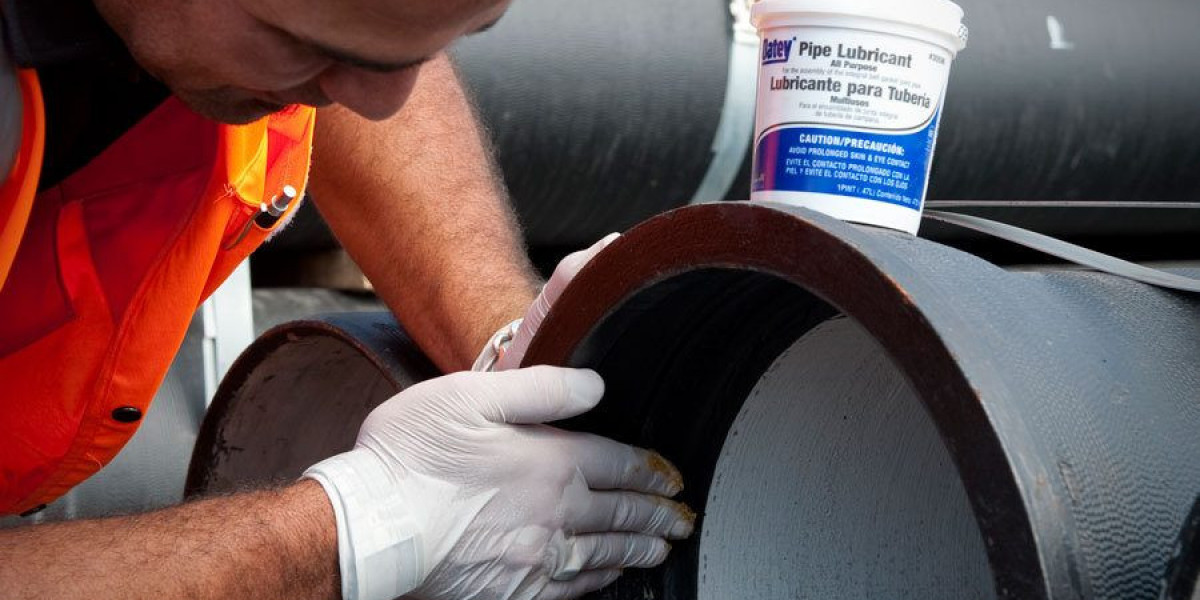If you are working in plumbing, maintenance, or construction, you have probably heard the term pipe grease. But what exactly is it, and why is it so important for your plumbing system? In simple words, pipe grease is a special type of lubricant used in pipes, joints, and fittings to help everything move smoothly and prevent damage over time.
This article will help you understand what pipe grease is, how it works, when to use it, and why it plays such a big role in keeping your plumbing system working properly.
What Is Pipe Grease?
Pipe grease is a thick, sticky lubricant made to protect and help parts of your plumbing system. It is applied to pipe threads, joints, seals, and fittings so that they connect more easily and stay tight. This grease also helps prevent leaks and corrosion.
It is different from regular grease because it is made to handle water, pressure, and sometimes chemicals. Some pipe greases are made for use with drinking water systems, while others are meant for industrial or sewer lines. Always choose the right type for the job you are doing.
Why Pipe Grease Is Used
There are many reasons why plumbers and workers use pipe grease. Here are some of the most common:
1. Smooth Installation
Pipes and fittings can sometimes be hard to connect. If the parts are too dry, they might get stuck or damaged. Pipe grease makes it easier to twist and tighten them without harming the threads or the seal.
2. Prevent Leaks
Using pipe grease helps create a better seal. It fills in small gaps between the pipe threads or fittings, which helps stop water or gas from leaking out.
3. Stops Rust and Corrosion
When metal pipes are exposed to water or air, they can start to rust. Pipe grease forms a layer over the metal that protects it from moisture, helping to prevent rust and corrosion over time.
4. Makes Repairs Easier
Greased pipes are easier to take apart later. If you need to make a repair or replacement, a little pipe grease now can save a lot of effort later.
Types of Pipe Grease
Not all pipe greases are the same. Depending on the job, you may need a special type. Here are some common types of pipe grease used in plumbing:
1. Silicone-Based Pipe Grease
This is often used in water systems, including drinking water lines. It is safe for rubber and plastic seals and works well at different temperatures.
2. Petroleum-Based Grease
This type is used in heavy-duty or industrial plumbing. However, it may not be safe for rubber or plastic parts, and it should not be used in drinking water systems.
3. Synthetic Grease
Made with chemicals instead of oil, synthetic greases are made to last longer and work well in high-temperature or chemical-heavy environments.
Where Is Pipe Grease Used?
Pipe grease is used in many places within a plumbing system, including:
Threaded pipe connections – to help make a tight seal.
Rubber gaskets and O-rings – to stop them from drying out and cracking.
Water pumps – to keep moving parts running smoothly.
Valves – so they turn easily and don’t get stuck.
Underground pipe fittings – where repair is difficult and long-lasting seals are important.
Benefits of Using Pipe Grease
Let’s take a closer look at the benefits of using pipe grease in your plumbing system:
1. Increases the Life of Your Pipes
Pipes that are protected with grease are less likely to wear out, corrode, or leak. This helps the entire system last longer and work better.
2. Saves Money
Preventing leaks and rust can stop small problems from turning into expensive repairs. Spending a little money on pipe grease now can save you much more in the future.
3. Improves System Safety
Pipe grease can help ensure that gas or water systems are sealed correctly. This reduces the chance of harmful leaks or system failures.
4. Better Performance
A well-greased plumbing system runs more smoothly. Valves open easier, seals are tighter, and everything works as it should.
How to Apply Pipe Grease
Using pipe grease is not hard, but it should be done correctly. Here are some steps to follow:
Clean the Area
Before applying pipe grease, make sure the parts are clean and dry. Wipe away dirt, dust, or old grease.Use the Right Amount
You don’t need a lot. A small, even layer of grease is enough. Too much grease can attract dirt and cause problems.Spread It Evenly
Use a brush or your finger to spread the grease evenly over the threads, gasket, or surface.Assemble the Parts
Once greased, connect the parts. They should fit together smoothly without force.Check the Seal
Make sure everything is tight, and there are no leaks. If needed, re-tighten the fittings slightly.
Safety Tips for Using Pipe Grease
Wear gloves to keep your hands clean and protect your skin.
Work in a ventilated area, especially if the grease has strong smells or chemicals.
Store it properly, keeping the container closed when not in use.
Follow the product instructions, and only use the grease in the way it was made for.
Choosing the Right Pipe Grease for Your Project
Different plumbing jobs require different greases. Always think about:
What kind of pipes or fittings you are using
Whether the system carries drinking water, gas, or chemicals
The temperature range the system will handle
If the parts are metal, plastic, or rubber
Choosing the right grease makes sure the job is safe and lasts a long time.
Final Thoughts
Pipe grease may seem like a small detail, but it plays a big part in the health of your plumbing system. It helps prevent leaks, makes installation easier, protects parts from rust, and saves money on repairs. Whether you are working on home plumbing, industrial systems, or underground pipes, using the right pipe grease can make your job safer and better.








